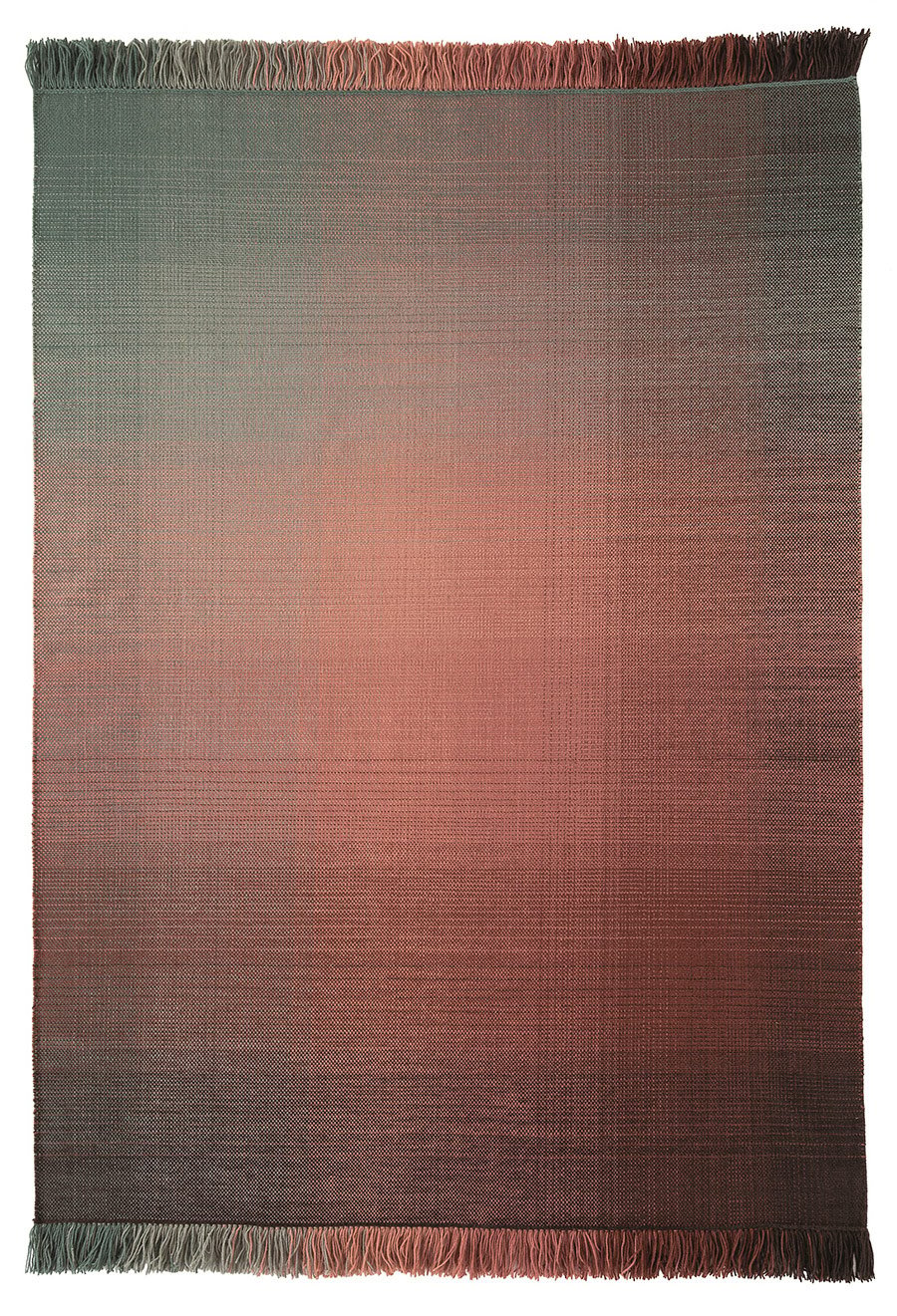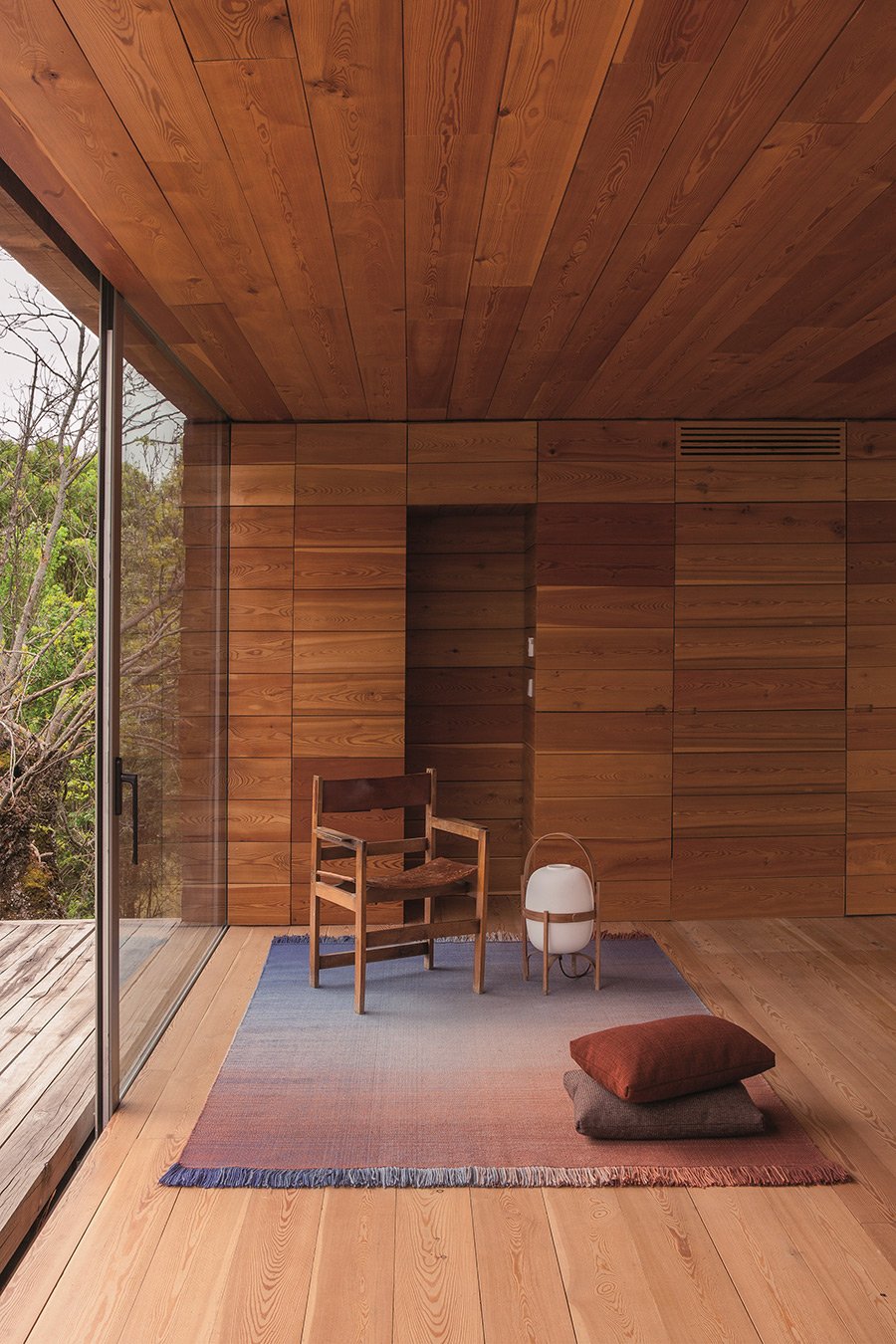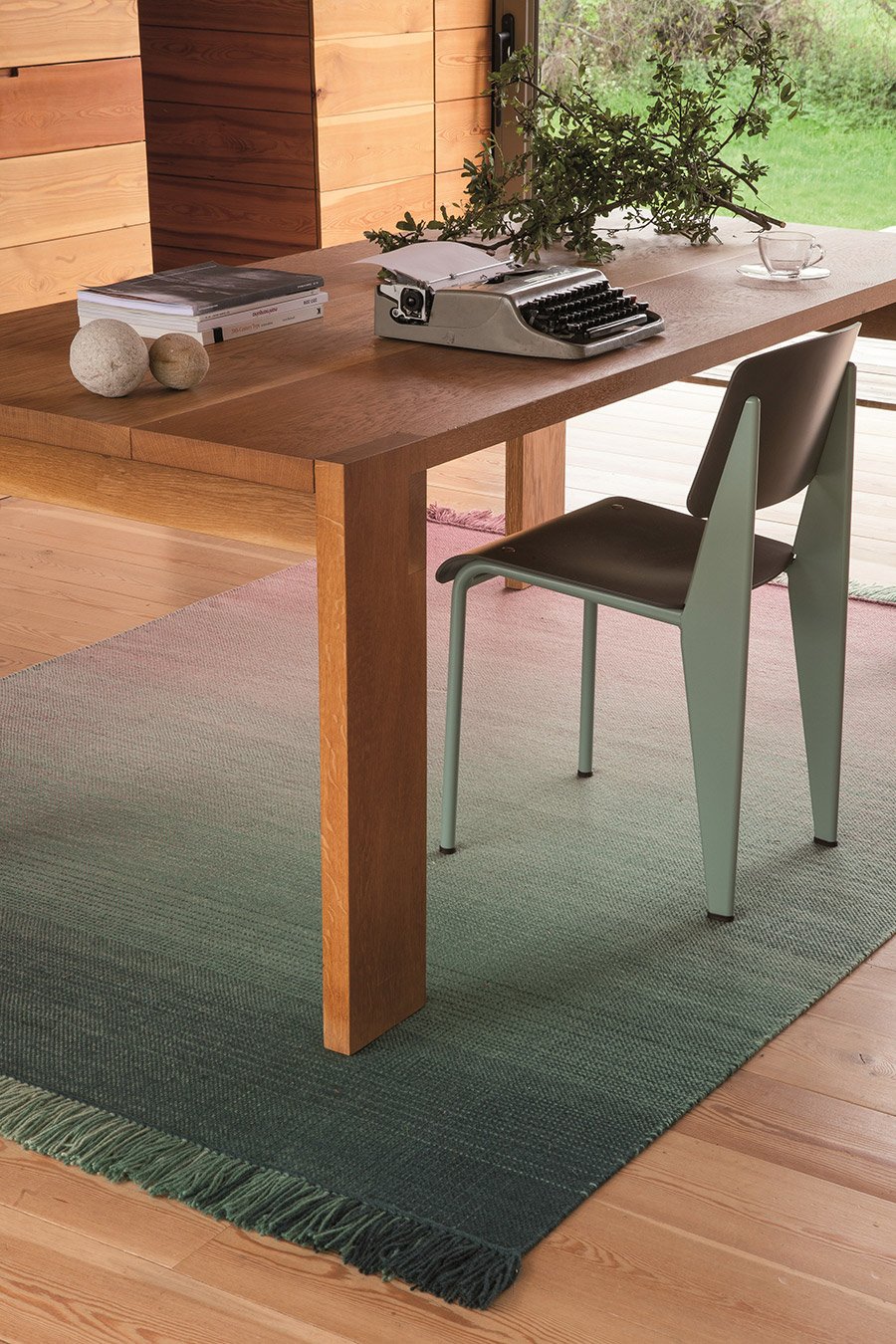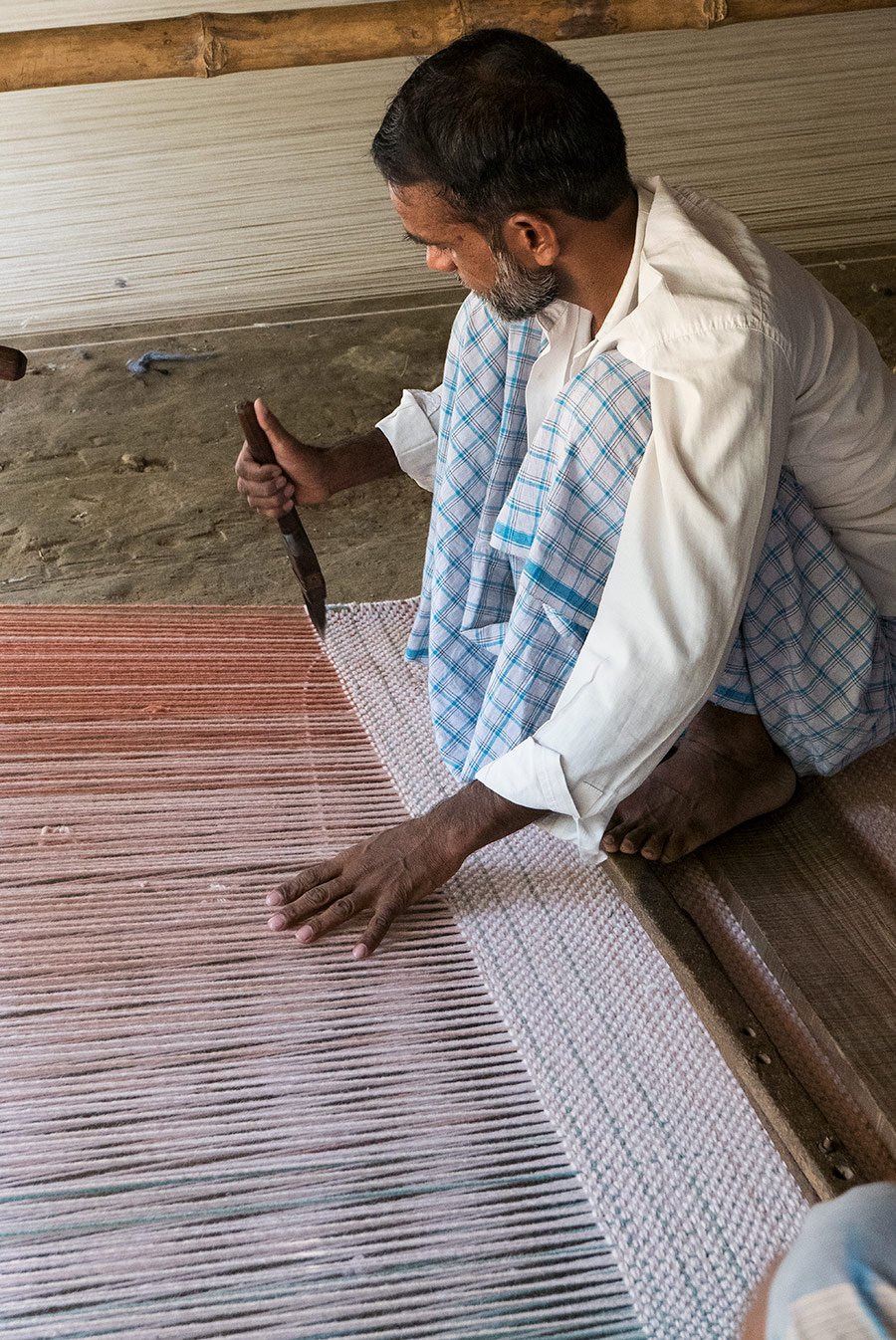
September 27, 2018
Textile Designer Begüm Cana Özgür Is Bridging Craft Tradition and Modern Industry
Just four years after founding her Istanbul studio, Özgür has forged collaborations with manufacturers like Spanish rug company nanimarquina while expanding the possibilities of craft production.

Though not formally trained in textiles, Begüm Cana Özgür is a force in her field. Just four years after founding her Istanbul studio, she has forged collaborations with manufacturers like Spanish rug company nanimarquina while expanding the possibilities of craft production.
Özgür studied interior architecture at Bilkent University in Ankara, graduating in 2010. She then moved to Michigan to study 3D design at Cranbrook Academy of Art, where she “rediscovered” herself in fibers, drawn to the discipline’s hands-on processes. The intimacy of the work changed her relationship to production. “In design education, we’re taught to think about the user’s needs,” she explains with characteristic emphasis, “but I realized that these needs are equally valid on the production side. I began to feel closer to this side.”
Upon moving to Istanbul in 2013, she sought out artisans as partners. She knew Turkey’s rich rug-making tradition was eroding as production moved to other countries with cheaper labor, and she wanted to do her part to counteract that trend. (Opticals, launched in 2017, and this year’s Haze are both produced by Anatolian weavers.) In the process of developing her partnerships, she discovered that many artisans are women who maintain traditional practices in their homes.
Being a woman has gained Özgür entry into weavers’ domestic spaces, shifting her role as a designer in a small yet significant way. She embraces her work’s potential to bridge divides, to be “a binder between two different worlds with different realities.” More to the point, through her designs Özgür is able to bring business opportunities to those who might otherwise not have access to them.

Flakes, a recent design with Atlas—a government-supported project that pairs designers with displaced Syrian women in the Harran refugee camp in southern Turkey, as well as local women—is an instructive example of Özgür’s production-forward approach. Over many visits to Harran, Özgür devised a modular textile of felt balls that could be produced piece by piece, providing work that the women could fit into their busy lives. In addition to Flakes, Özgür has used the system in Harmala, a room divider.
It’s not paradoxical that Özgür, who complements her op-art-reminiscent aesthetic with handcrafted qualities, now attracts commercial recognition. Last year, she launched Shade, her debut collection with nanimarquina (handwoven not in Turkey but in India), and this year she has embarked on two collaborations with Turkish rug manufacturer Stepevi and ceramic tile–maker Gorbon. She sees her partnerships with manufacturers as resonating with her independent work with Turkish producers.
Özgür often speaks about rugs as a mode of storytelling, but one might also liken them to a dialogue. She aims to initiate discussions between makers and clients, old and new Turkey, in hopes of creating something that transcends those binaries. When she moved to Istanbul, she says, people were underwhelmed to discover that she designed rugs, which are ubiquitous there; they did not realize a quotidian object could have such creative, social, and political potential. Things are changing, though, as a younger generation reimagines its design heritage, and Özgür sees her work within that forward momentum: “I think there’s an awakening.”
You might enjoy “8 Deep-Dives That Reveal the State of Textile Design and Manufacturing.”
















